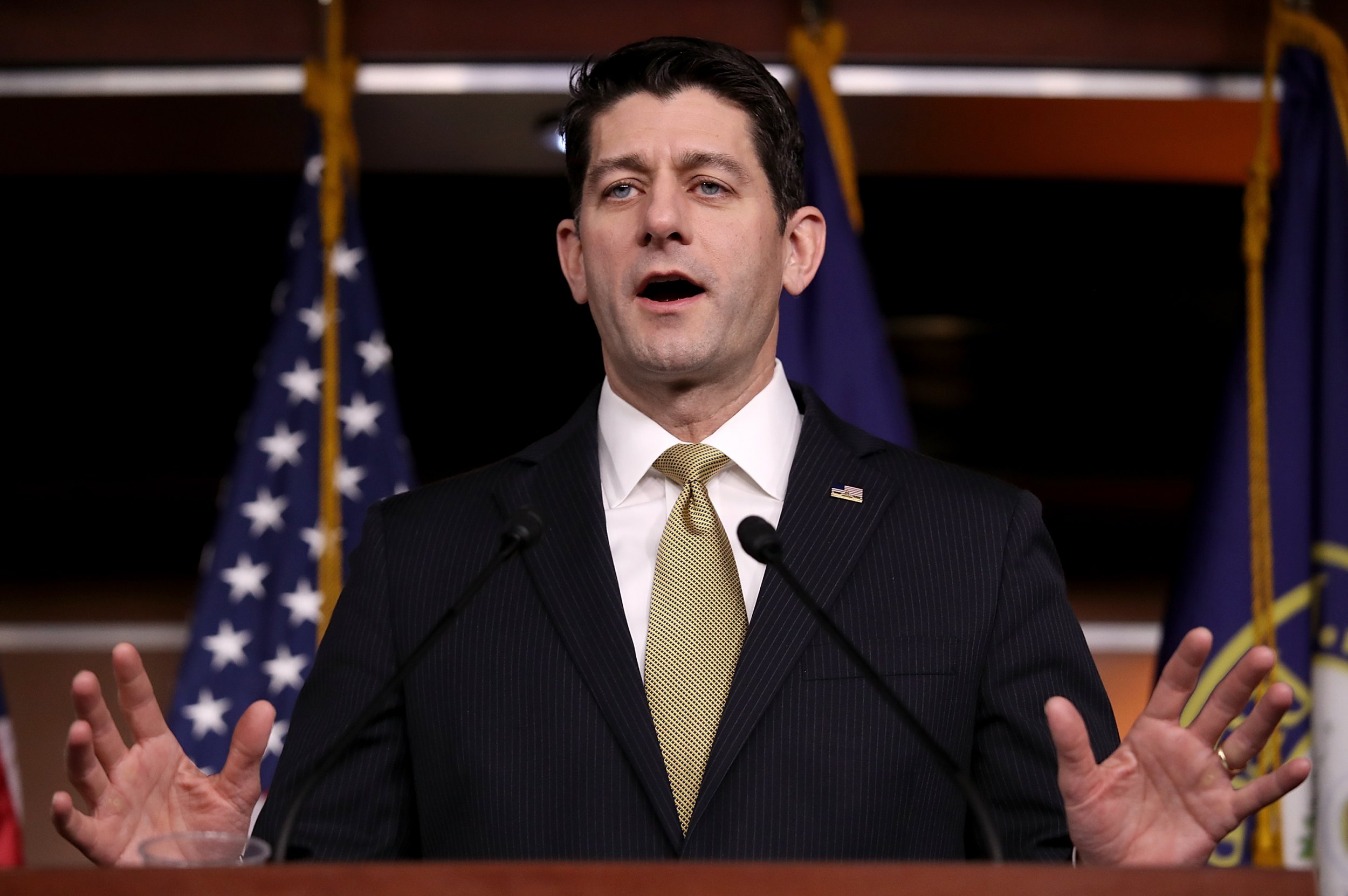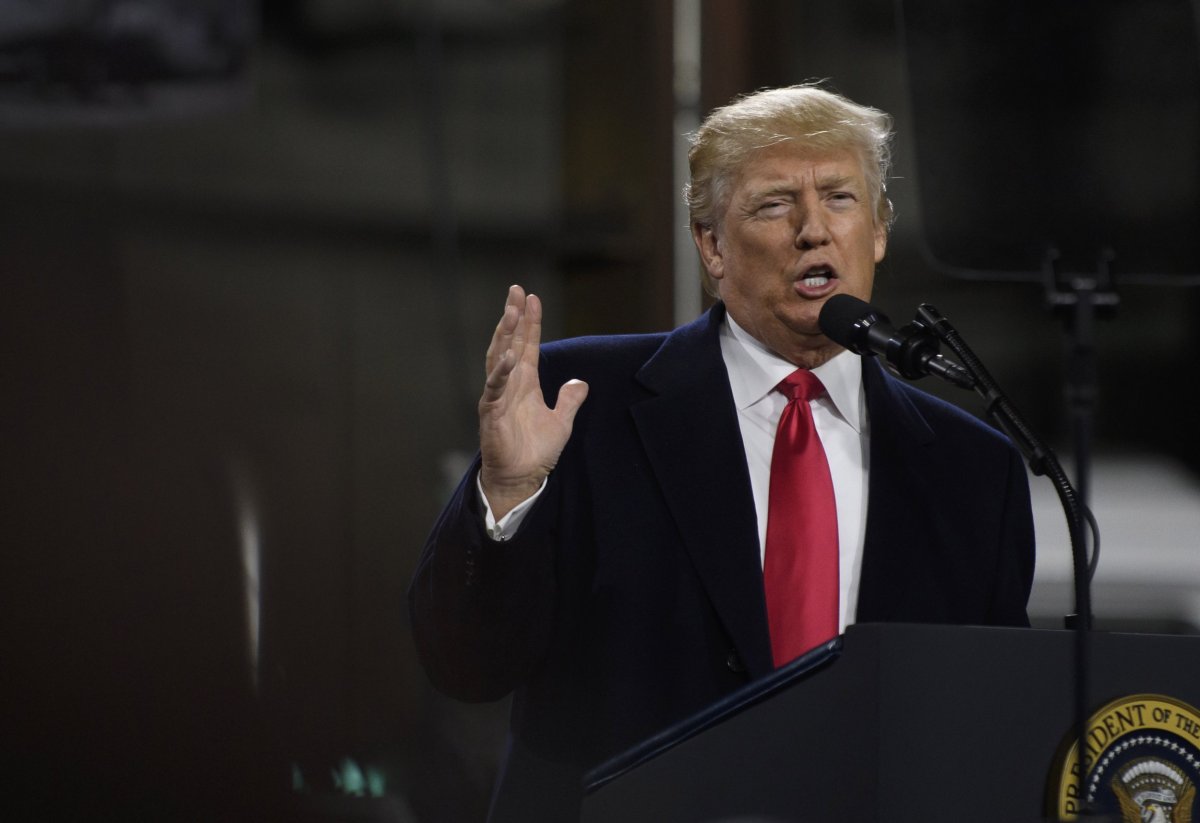
With the threat of a government shutdown looming, the House of Representatives voted late Thursday to keep the government open past a Friday deadline to secure a short-term extension of government funding.
However, Senate Democrats have the voting power to block the House-passed measure to fund the government for another four weeks—and they are threatening to use it if Republicans are not willing to make concessions on immigration.
Here's everything you need to know:
Why Is This Happening?
If Congress and President Donald Trump are unable to approve spending legislation by midnight on Friday, they will force government operations to shut down due to a lack of agreed funding.
Growing calls to challenge the Trump administration on its immigration crackdown have emboldened the Democrats to threaten to reject the measure unless concessions are made.
The standoff centers on the Deferred Action for Childhood Arrivals (DACA) program, which allows undocumented immigrants who were brought to America as children, known as Dreamers, to remain in the country.
Democrats want a deal to shield the Dreamers, of which there are as many as 800,000, from deportation. Trump earlier decided to end the Obama-era program, which offers the Dreamers protections, and DACA is now set to expire March 5.
Republican leaders have argued that the short-term funding extension would give the White House and lawmakers more time to negotiate a deal on immigration policy.
However, disputes on the heated issue have been ongoing for months, and some Democrats have said they are not willing to support the continued funding of a standoff among lawmakers.
Who Is to Blame?
Republican and Democrat leaders have already launched into blaming each other for a shutdown that has yet to happen.
Senate Majority Leader Mitch McConnell has accused Democrats of a "fixation on illegal immigration," according to the Associated Press. He said the Democrats are "threatening to filibuster spending for the whole government."
McConnell reportedly sent out an email to GOP senators, which was obtained by the AP, warning lawmakers that voting against the measure "plays right into Democrats' hand," as such a move would undermine efforts to blame Democrats for killing the legislation.
House Speaker Paul Ryan called on Senate Democratic leader Chuck Schumer to not shut down the federal government. "Senator Schumer," he said, "it is risky. It is reckless. And it is wrong."
Trump further accused Democrats of forcing a shutdown "to get off the subject of the tax cuts because they're doing so well."
However, Schumer countered by asking how senators could properly negotiate when the president, who ultimately has to sign the legislation, "is like a sphinx on this issue, or says one thing one day and one thing the next."
Senator Patrick Leahy, the senior Democrat on the Senate Appropriations Committee, issued a statement holding the Republicans responsible for the potential shutdown.
"President Trump wants to shut down the government over his cynical and misbegotten 'big beautiful wall,' which will be paid for by U.S. taxpayers, not Mexico," Leahy said.
In a bid to avoid a complete shutdown, Schumer proposed passing a "very short-term" bill that would keep the government running at least for a few more days, as an alternative to a monthlong extension on funding.
What Would a Government Shutdown Mean?
A shutdown occurs when Congress and the president are unable to pass appropriations legislation funding government operations and agencies.
It would mean the closure of federal offices, with thousands of employees staying home. Most government services would be paused, aside from "essential" services such as the FBI, the Department of Homeland Security and most military operations.
If a shutdown were to happen this weekend, it would be the fourth of its kind to occur in roughly two decades, according to the AP. The most recent shutdown occurred under the Obama administration in 2013, after Republicans refused to support a spending bill that would mean providing funding for Obama's healthcare law.
The shutdown resulted in a 16-day freeze on government services.
What Will a Shutdown Look Like?
Depending on how long a shutdown lasts, it can cost billions of dollars.
A December report by S&P Global estimates that a shutdown could cost the U.S. as much as $6.5 billion per week and could shave approximately 0.2 percentage points, or $6.5 billion, off real fourth-quarter growth in the gross domestic product for each week it goes on.
"But since the government touches almost every aspect of the economy, the full effect of a shutdown would likely be much larger," the analysts say in their report. "A disruption in government spending means no government paychecks to spend; lost business and revenue to private contractors; lost sales at retail shops, particularly those that circle now-closed national parks; and less tax revenue for Uncle Sam. That means less economic activity and fewer jobs."

During the 2013 freeze on government operations, the Council of Economic Advisers estimated that 120,000 fewer private-sector jobs were created during the first two weeks of the shutdown.
S&P Global also warns in its report that a shutdown will "add to the budget deficit because it's costly to stop and start programs."
Uncommon Knowledge
Newsweek is committed to challenging conventional wisdom and finding connections in the search for common ground.
Newsweek is committed to challenging conventional wisdom and finding connections in the search for common ground.
About the writer
Chantal Da Silva is Chief Correspondent at Newsweek, with a focus on immigration and human rights. She is a Canadian-British journalist whose work ... Read more
To read how Newsweek uses AI as a newsroom tool, Click here.








